FY2017 PERFORMANCE REPORT
 IMPLEMENTATION
IMPLEMENTATION
Number of internships


Intern nationalities
| REGION | INTERN NATIONALITY | TOTAL |
|---|---|---|
| Asia | Viet Nam | 33 |
| Asia | China (People's Republic of) | 22 |
| Asia | Indonesia | 19 |
| Asia | Thailand | 15 |
| Asia | India | 8 |
| Asia | Malaysia | 8 |
| Asia | Philippines | 5 |
| Asia | Myanmar | 4 |
| Asia | Mongolia | 1 |
| Asia | Pakistan | 1 |
| Africa | Mauritius | 1 |
| Africa | Sudan | 1 |
| Africa | Tunisia | 1 |
| Africa | Uganda | 1 |
| 120 |
Host regions
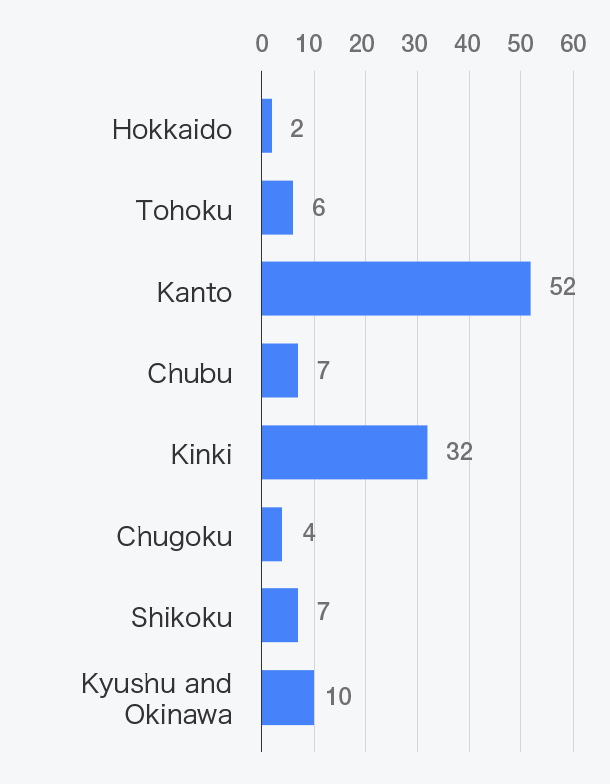
Host regions
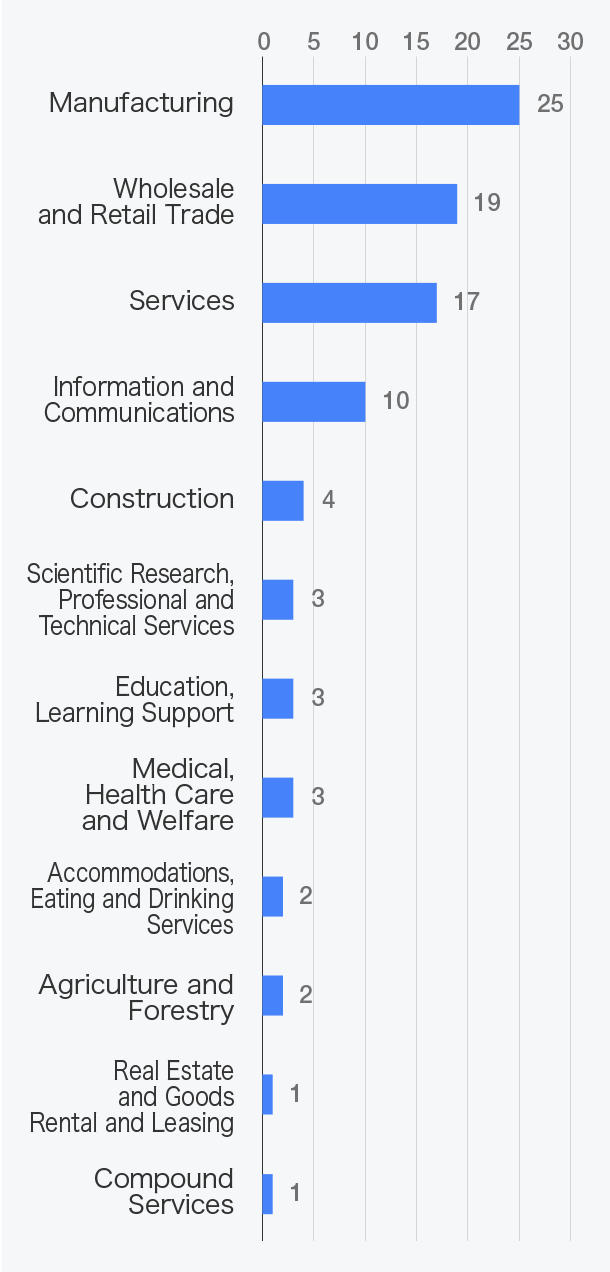
Scale and status of overseas operations of host companies
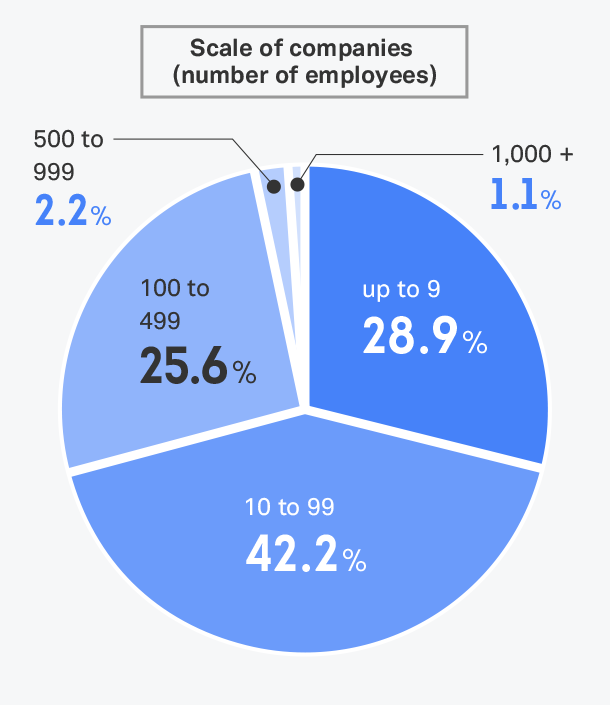
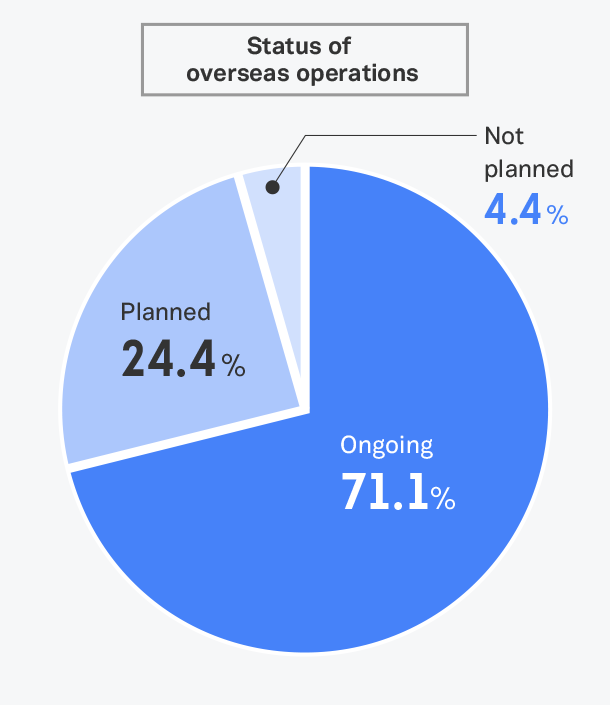
Interns’ linguistic abilities
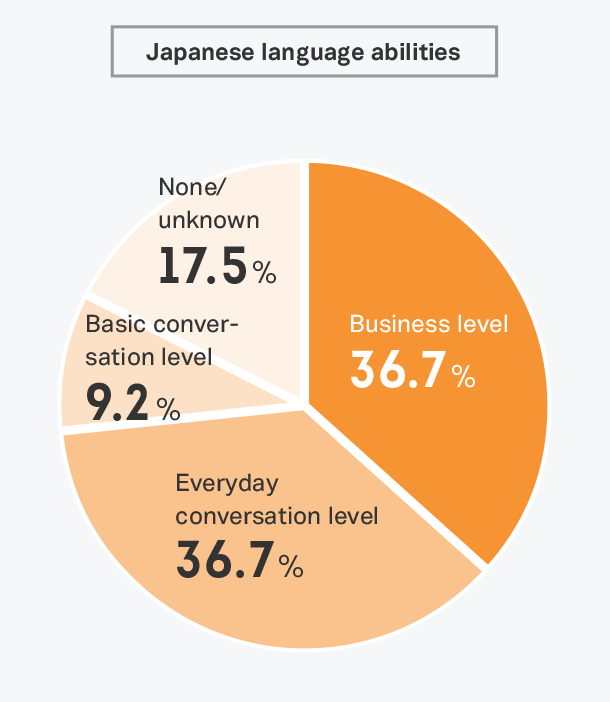
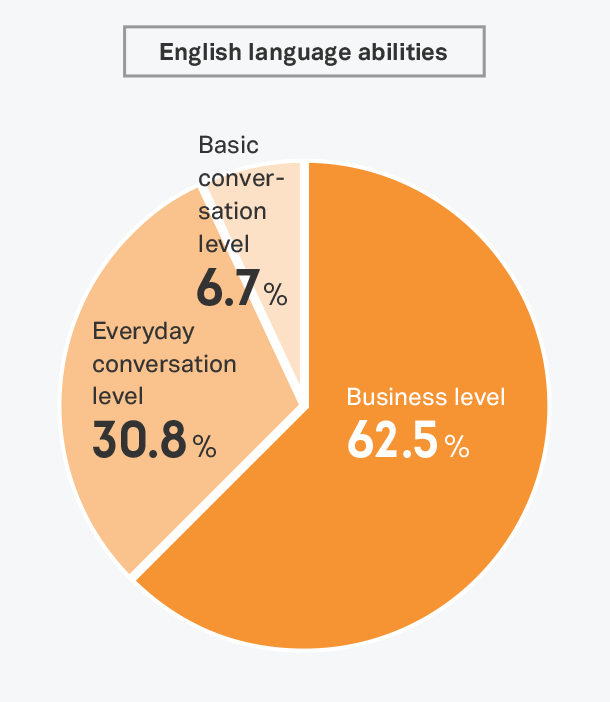
 RESULTS* Results of a post-internship survey.
RESULTS* Results of a post-internship survey.
 Were you satisfied with the internship overall?
Were you satisfied with the internship overall?
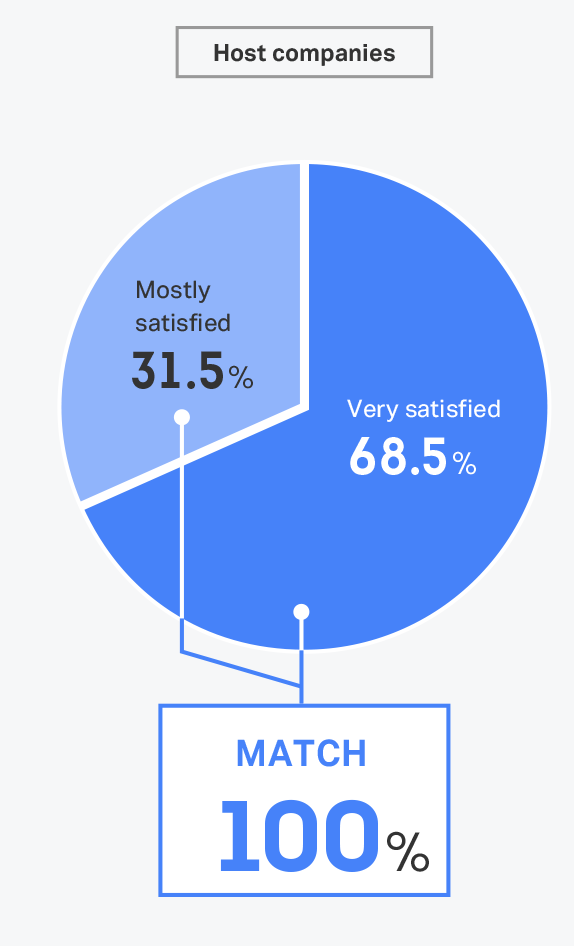
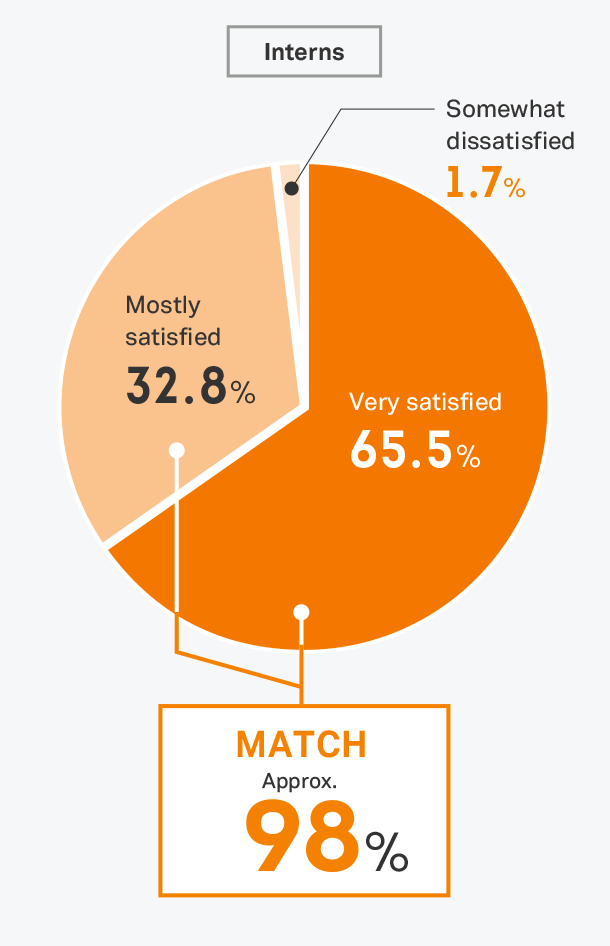
 Did the intern/company recommended to you by the Program Office match your preferences?
Did the intern/company recommended to you by the Program Office match your preferences?
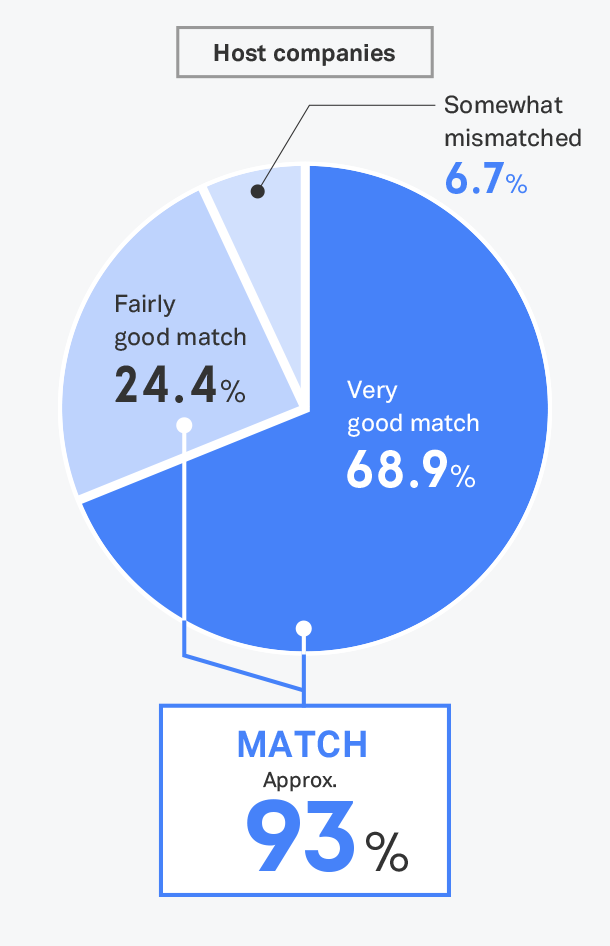
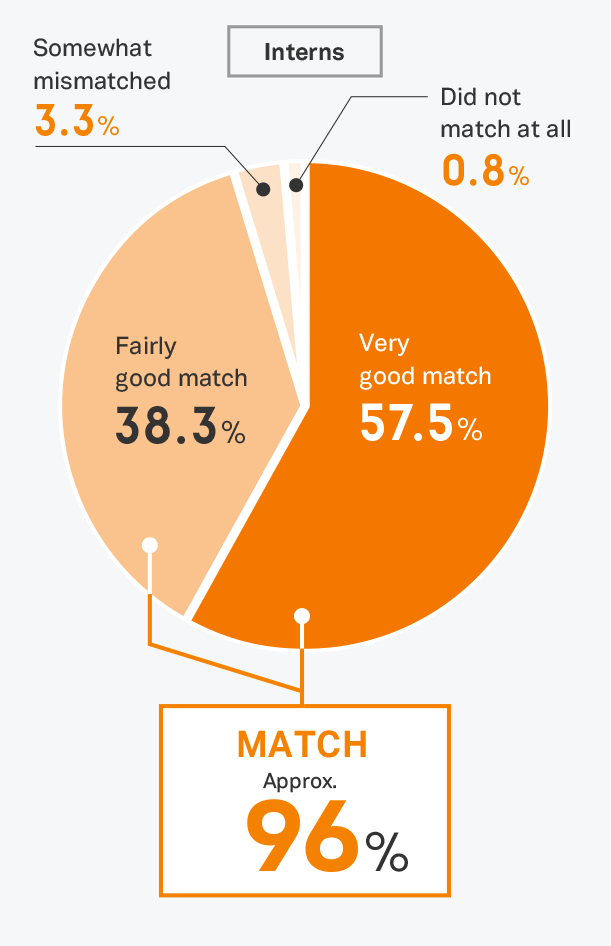
 What did you gain from the internship?(Multiple answers)
What did you gain from the internship?(Multiple answers)
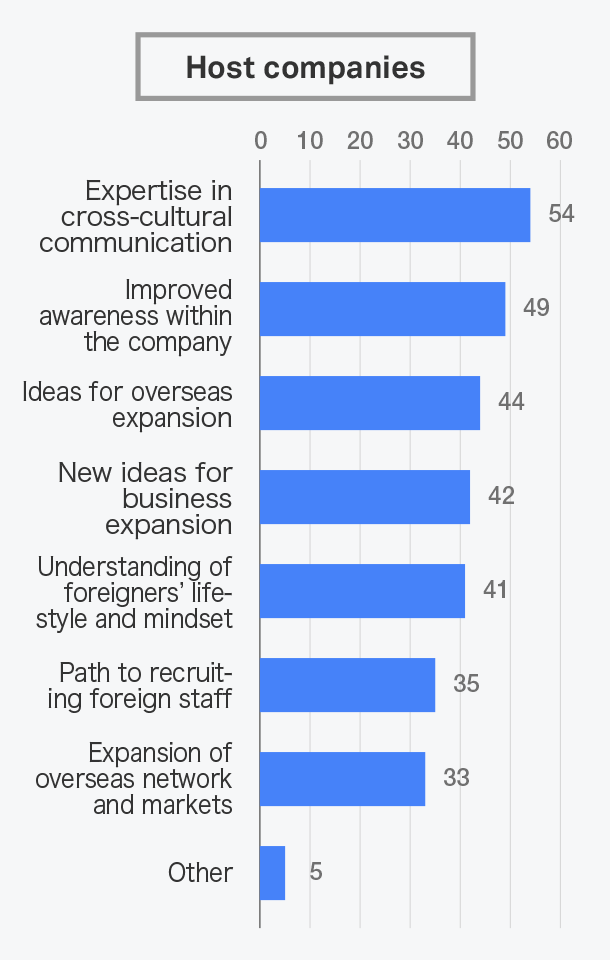
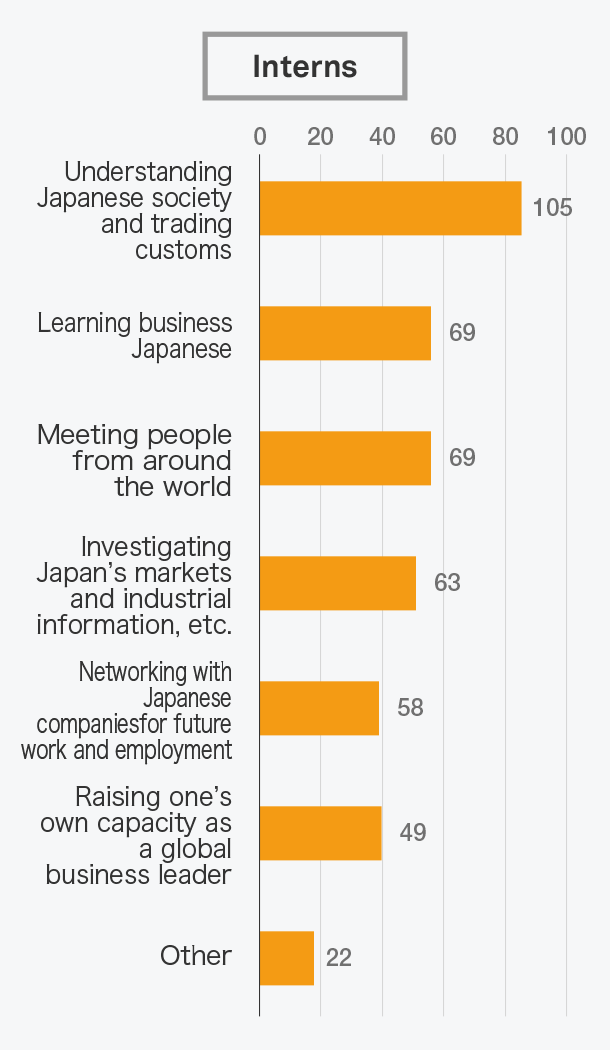
 How did the internship influence your company’s overseas business and new business development?
How did the internship influence your company’s overseas business and new business development?
(Multiple answers)
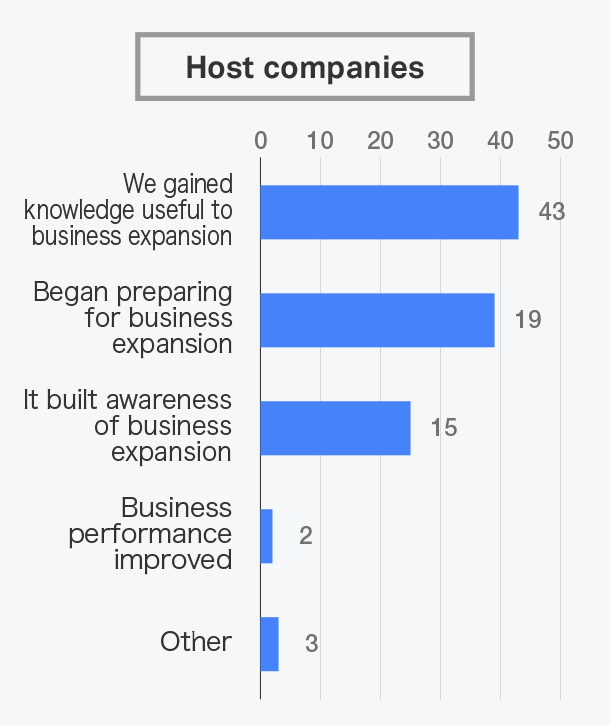
- We learned the ins and outs of the security system used by the competent authority for halal certification.(Manufacturing)
- Having drawings from overseas adapted to Japanese specifications allowed us to make construction preparations.(Construction)
- We were given advice to the effect that, while it was a difficult market to sell individual products in, selling them together with high-quality installation services would make them appealing.(Wholesale and Retail Trade)
- When preparing a business plan, the intern offered ideas from a different perspective, providing insights as to how we might proceed in doing business overseas.(Scientific Research, Professional and Technical Services)
- The intern challenged employees' assumptions and spoke frankly his/her mind.(Manufacturing)
- We developed a website for recruiting foreign staff. We could build it with the understanding that non-Japanese workers have a hard time understanding a cultural trait unique to Japan that allows people to be hired regardless of their area of specialization.(Manufacturing)
 How did this lead to a change in the thought processes of your employees?
How did this lead to a change in the thought processes of your employees?
(Multiple answers)
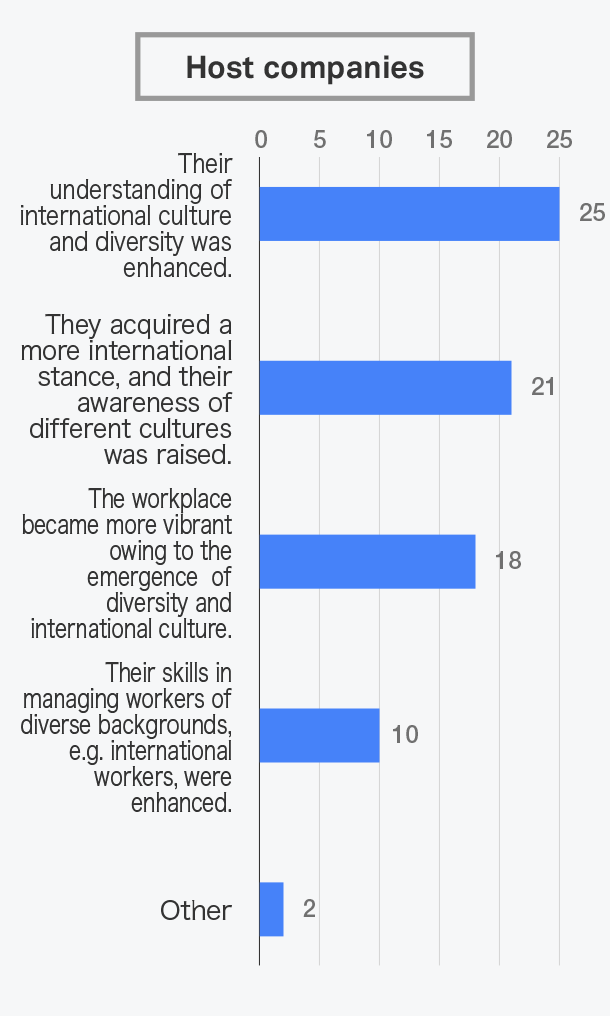
- I saw the company's attitude towards international business change — where employees once had little passion for going to trade shows and doing factory tours overseas, they are now excited to go.(Wholesale and Retail Trade)
- Our employees have taken an interest in and can now talk about overseas affairs.(Manufacturing)
- Our corporate culture became one where we make things visible, talk about them, and find out how each of us truly feels about things.(Information and Communications)
- We have stopped assuming that only Japanese staff could do the work we do.(Manufacturing)
- By learning how to explain things simply and carefully so that the intern would understand, we experienced the meaning of diversity.(Manufacturing)
- Every employee made an attempt to speak with the intern in English, and it became easier to communicate with even foreign travelers.(Services)
 How did this lead to employing foreigners?
How did this lead to employing foreigners?
(Multiple answers)
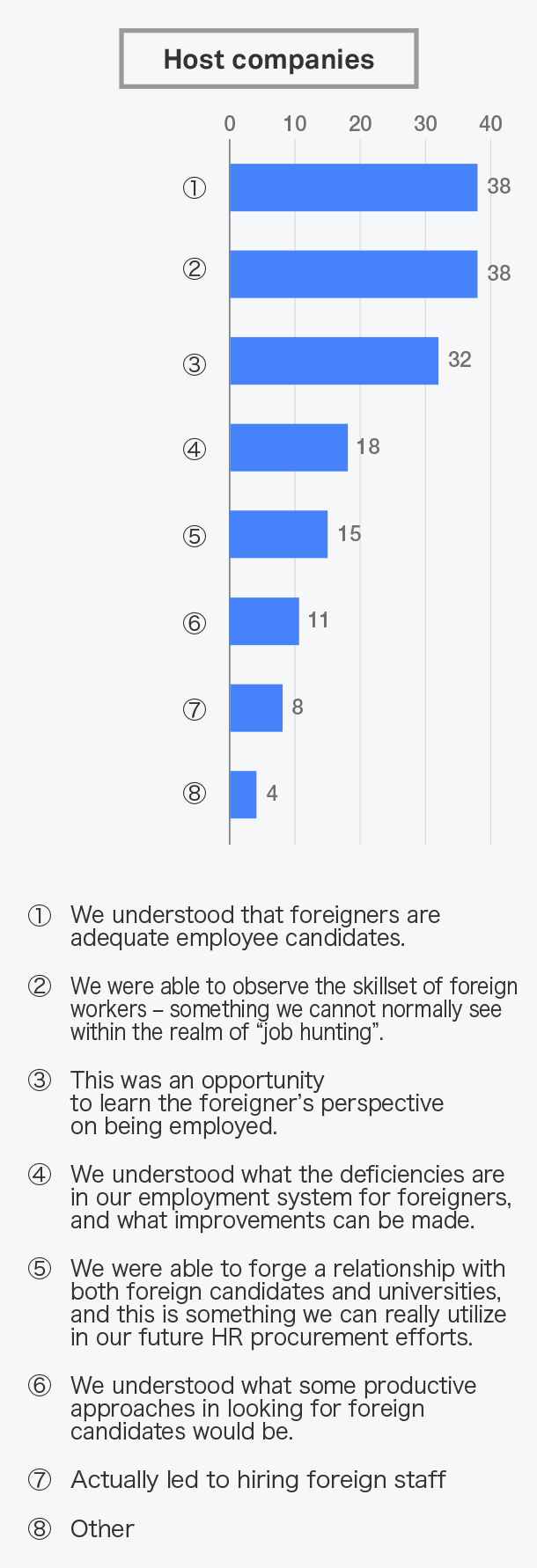
- The opportunity arose to hire foreign staff to work as guides for foreign travelers.(Services)
- Foreign nationals have a keen awareness about things and a strong sense of duty. I felt these qualities were on par with the Japanese employees.(Manufacturing)
- When putting together materials for recruiting foreign staff, I was able to ask the intern what information foreign nationals would need and what concerns they would have.(Wholesale and Retail Trade)
- Since Japanese is the lingua franca for recruitment, this puts a heavy drag on attempts to do business overseas. We were able to show that by putting efforts on arranging international human resources who had some ability to speak Japanese, they could be a useful part of the workforce.(Scientific Research, Professional and Technical Services)
- We found that, in order to help production, it was important to create a relaxed environment at the company. People say that Japanese value the building of interpersonal connections, but we felt that connections between people were seen as even more important overseas.(Manufacturing)








